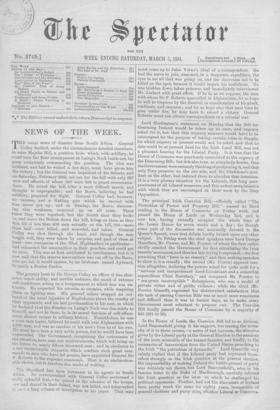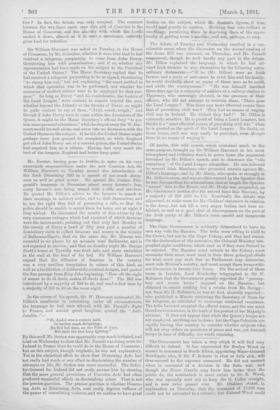In the House of Lords, the Coercion Bill led to
no division, Lord Beaconsfield giving it his support, but tracing the neces- sity of it to three causes,—a series of bad harvests, the stimulus given by the Liberal party at the General Election to the passions of the more miserable of the tenant-farmers, and finally, to the emissaries of insurrection from the United States preaching to the Irish "the patriotism of dynamite." Lord Granville very calmly replied that if the Liberal party had expressed them- selves strongly on the Irish question at the general election, the responsibility of making Ireland the battle-ground of party was certainly not theirs, but Lord Beaconsfield's, who, in his famous letter to the Duke of Marlborough, carefully selected the Irish question as the issue on which he challenged his political opponents. Further, had not the discontent of Ireland been pretty much the same for eighty years, irrespective of general elections and party cries, whether Liberal or Comma-
tive P In fact, the debate was only nominal. The contrast between the wry faces made over this pill of Coercion iu the House of Commons, and the alacrity with which the Lords sucked it down, almost as if it were a sweetmeat, certaiuly gives food for reflection.



































